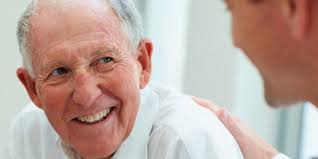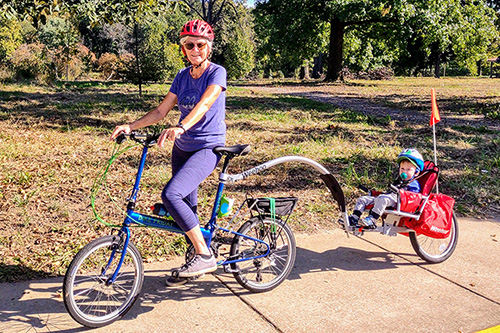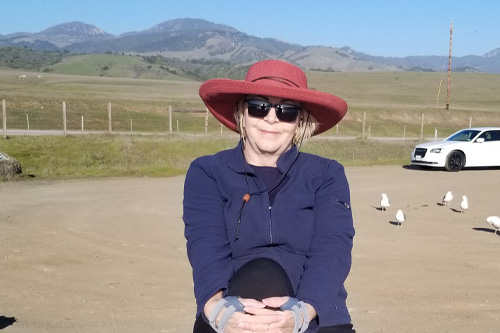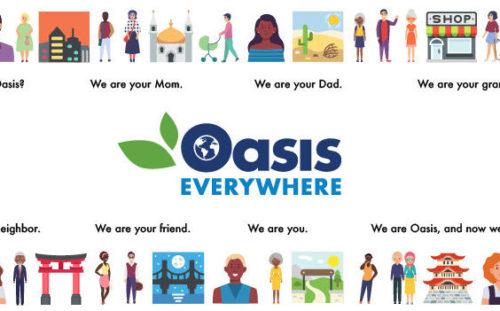Did you know that teeth are things that people do not necessarily lose as they grow older?
 Good daily oral hygiene is often overlooked as a person grows older. According to the Centers for Disease Control and Prevention (CDC), one third of adults ages 65 years and over have untreated tooth decay and 40 percent have periodontal disease.
Good daily oral hygiene is often overlooked as a person grows older. According to the Centers for Disease Control and Prevention (CDC), one third of adults ages 65 years and over have untreated tooth decay and 40 percent have periodontal disease. If your fear of visiting the dentist has caused you to put off seeing one, you could soon be dealing with something a lot scarier. Oral health can affect, be affected by, or can contribute to various diseases and conditions, including:
- Cardiovascular/heart disease: Clogged arteries and stroke might be linked to the inflammation and infections that are caused by oral bacteria.
- Endocarditis: This infection of the inner lining of the heart usually occurs when bacteria or other germs from another part of the body, such as the mouth, spread throughout the bloodstream and attach to damaged areas in the heart.
- Diabetes: This reduces the body's resistance to infection which may cause gum disease to be more frequent and severe among people who have diabetes. Also, people who have gum disease have a harder time controlling their blood sugar levels.
- Osteoporosis: This disease, which causes bones to become weak and brittle, might be linked to periodontal bone loss and tooth loss.
Medicines matter
Medications that many older adults take for chronic conditions, such as antihistamines, diuretics, and antidepressants, reduce salivary flow which causes dry mouth and can be detrimental to oral health. This is why it is very important to get yearly dental check-ups and inform the dentist of any medications or changes in overall health — especially any recent illnesses or chronic conditions. Even though you might not have had a cavity for many years, your risk for decay increases with age. The American Dental Association recommends the following habits to help keep your mouth healthy:
- Brush your teeth twice a day with toothpaste that contains fluoride. Use a toothbrush with soft bristles and replace your toothbrush every three to four months. Once daily, use floss to clean between your teeth. If floss is too difficult to work with, use a floss pick or tiny brushes that are made specifically to clean between teeth.
- Clean dentures daily with cleaners made specifically for dentures. Do not use the same toothpaste that you would for natural teeth, or household cleaners, which are too abrasive and can damage dentures. It is best to take dentures out at night, soak them in water and let the mouth rest. This keeps the lining of your mouth healthy. Remove and rinse dentures after you eat, brushing them with a regular toothbrush or a tooth brush made especially for dentures.
- Get regular dental checkups at least once a year. Do not wait until you are in pain. As a person ages, the nerves inside teeth become smaller and less sensitive. It may be too late to save a tooth by the time a cavity is causing pain. The dentist also looks for symptoms of oral cancer and gum disease, which do not always cause pain until advanced stages. By then, it can be more difficult and costly to treat. Thirty thousand oral (in the mouth) & pharyngeal (located in the pharynx) cancers are diagnosed annually.
- Drink water with fluoride, which helps prevent tooth decay. Many community water systems contain added fluoride. If you mostly drink bottled water, check the label to see if it contains fluoride.
- Quit Smoking. Smoking increases problems with gum disease, tooth decay and tooth loss and slows down healing after dental procedures. Talk to your dentist for recommendation on how to quit smoking.
Getting the dental care you need
Good oral hygiene, choosing a healthy lifestyle and getting regular dental check-ups are all important steps that you can take to a healthy mouth. Access to the oral health care system, however, can be especially difficult for older adults due to the cost of oral health care and limited dental insurance for retirees that is not included in Medicare.
Resources are available to help older adults overcome the barriers to accessing affordable oral health care. If you are over 60, or are the caregiver of an older adult in need of dental care, consider the following resources:
- Oral Health America's Tooth Wisdom offers a list of dental resources available in your state.
- The Health Resources and Services Administration funds Community Health Clinics (CHC), the majority of which provide dental services for people, even if they have no dental health insurance. You can find a federally funded health center near you, where you pay what you can afford, based on your income.
- Contact your local or state chapters of the American Dental Association, American Dental Hygienists’ Association of a local dental school.
- Finding Low-Cost Dental Care, a resource from the National Institute of Dental and Craniofacial Research








Leave A Comment
You must be logged in to post a comment.